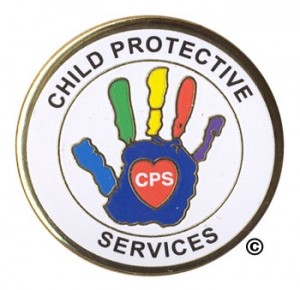In nearly every occupation an individual could be involved in, moral issues are bound to arise. Whether a schoolteacher at an elementary school, or a Major League Baseball player, ethical quandaries regarding one’s character will be tested.
In this particular case, multiple moral issues are presented. The foremost, and ostensibly the most obvious dilemma, is whether or not Ashley should voice her opinion regarding the best situation for the newborn baby. In an ordinary case with a mother giving birth to her baby, the  mother clearly receives full custody over caring for the infant. Alternatively, in this case, the mother has been deemed by the hospital administration to be of inadequate character and responsibility to care for the baby. Thus, the decision was made to place the baby into Children’s Aid care. There is an enormous amount of pressure on Ashley to agree with what the hospital has decided to do with the baby because Ashley is an inexperienced nurse shadowing Joan—a veteran nurse who seems to be competent in her job. Clearly the hospital expects Ashley to follow closely to Joan’s actions both while caring for patients physically, and while making ethical decisions. Contrarily, in the Code of Ethics for Nurses in the Provisions of the Code of Ethics for Nurses with Interpretive Statements, Provision 2 states, “The nurse’s primary commitment is to the patient, whether an individual, family, group, community, or population” (Page 8, Code of Ethics for Nurses). Additionally, Provision 3 from the Code of Ethics for Nurses states, “The nurse promotes, advocates for, and protects the rights, health, and safety of the patient” (Page 8, Code of Ethics for Nurses). These Provisions from the Code of Ethics for Nurses require Ashley to voice her opinion on the situation to her coworkers. On the other hand, if Ashley speaks against the actions of her employer, the hospital, she risks losing her job, and maybe even her career.
mother clearly receives full custody over caring for the infant. Alternatively, in this case, the mother has been deemed by the hospital administration to be of inadequate character and responsibility to care for the baby. Thus, the decision was made to place the baby into Children’s Aid care. There is an enormous amount of pressure on Ashley to agree with what the hospital has decided to do with the baby because Ashley is an inexperienced nurse shadowing Joan—a veteran nurse who seems to be competent in her job. Clearly the hospital expects Ashley to follow closely to Joan’s actions both while caring for patients physically, and while making ethical decisions. Contrarily, in the Code of Ethics for Nurses in the Provisions of the Code of Ethics for Nurses with Interpretive Statements, Provision 2 states, “The nurse’s primary commitment is to the patient, whether an individual, family, group, community, or population” (Page 8, Code of Ethics for Nurses). Additionally, Provision 3 from the Code of Ethics for Nurses states, “The nurse promotes, advocates for, and protects the rights, health, and safety of the patient” (Page 8, Code of Ethics for Nurses). These Provisions from the Code of Ethics for Nurses require Ashley to voice her opinion on the situation to her coworkers. On the other hand, if Ashley speaks against the actions of her employer, the hospital, she risks losing her job, and maybe even her career.
Another moral dilemma presented in this case is the decision of who should care for the baby. This is more of a question of which individual or organization is most suitable for the job. Judging by the fact that the mother, Deborah, has a long history with drug use and has been involved in the sex-trade for approximately five years, it is a tough argument to say that Deborah is prepared for motherhood. Furthermore, just two years earlier, Deborah gave birth to a child that child protective services took custody of and cares for. There is a precedent here. Since child protective services has already deemed Deborah an unsuitable guardian for her first child, the same decision of incompetence will be determined for her second child. This is because Deborah relapsed back into drug use and sex trade after having her first baby stripper from her. Additionally, the newborn child is an innocent being; the child deserves the best of possible circumstances to grow up in. Whether the best situation for the child’s upbringing is with adoption, with Deborah, or with an alternative upbringing situation, the decision must be made in which situation the child will be raised.
Deborah an unsuitable guardian for her first child, the same decision of incompetence will be determined for her second child. This is because Deborah relapsed back into drug use and sex trade after having her first baby stripper from her. Additionally, the newborn child is an innocent being; the child deserves the best of possible circumstances to grow up in. Whether the best situation for the child’s upbringing is with adoption, with Deborah, or with an alternative upbringing situation, the decision must be made in which situation the child will be raised.
In regards to the first dilemma regarding Nurse Ashley’s silence, it is difficult to speak up when you are aware of the possible consequences of doing so. Still, Ashley should have voiced her concerns privately with Nurse Joan and the rest of the hospital staff making the decision. The party that should care for the child should be a reliable one. The mother cannot be relied on to care for the child. What if the mother relapses back into drug use? Who will be there to care for the baby? The only conceivable choice is to allow a reliable party (not the mother) to care for and raise the infant. I believe that the hospital has followed through with the moral action concerning the party that cares for the baby. This is the best response in this situation because, when it comes down to decision making, the most important factor to consider is the welfare of the baby.
Sources:
“Anonymous Mom: I Almost Called Child Protective Services On Myself.”Mommyish RSS. Mommyish.com, 8 Jan. 2013. Web. 21 Jan. 2015. <http://www.mommyish.com/2012/09/13/called-child-protective-services-657/>.
“Code of Ethics for Nurses With Interpretive Statements(View Only for Members and Non-Members).” Code of Ethics for Nurses With Interpretive Statements(View Only for Members and Non-Members). American Nurses Association, n.d. Web. 19 Jan. 2015. <http://www.nursingworld.org/MainMenuCategories/EthicsStandards/CodeofEthicsforNurses/Code-of-Ethics-For-Nurses.html>.
“Lincoln University.” Fort Leonard Wood Campus. Lincoln University, n.d. Web. 21 Jan. 2015. <http://www.lincolnu.edu/web/fort-leonard-wood/fort-leonard-wood>.
McEssy, Cheri. “Older Nurses Asset to Healthcare System | Berwyn.” Older Nurses Asset to Healthcare System | Berwyn. Brightstar Care, 20 Mar. 2012. Web. 21 Jan. 2015. <http://www.brightstarcare.com/berwyn/2012/03/20/older-nurses-asset-to-healthcare-system/>.
Jonah Adler
Hello Jonah,
I agree with you when you stated that the child should have the most reliable care available. The questions you pose after such as “What if the mother relapses back into drug use? Who will be there to care for the baby?” are issues that are important to consider, however it feels like you are defining the mother by her past, implying that no matter what, the mother is unfit to care for her child. I believe that people have the ability to change, and whether or not she does relapse should not be a concern as of yet. The hospital administration should have included the mother in the decision making of taking her child under care. They should have took time out to understand under what circumstances caused the mother to do the things that she did in the past, and how could they possibly help her going forward to ensure that she wouldn’t go down that path again. Perhaps she has no help and being involved in the sex business was her only means of income. Furthermore, when they tested the mother for illicit drugs, the tests came up clean, clearly showing that the mother is capable of restraint.
Lastly, the way this whole case turned out has a lot to do with race. The fact that the mother is First Nation completely jaded the perspective of nurse Joan. She explicitly stated that as soon as she found out the woman was First Nations she expected that the child would go into custody (pg. 369). Her prejudice ideologies made no room for any other options to be considered. I just feel like the mother should have been included in the decision making. Sometimes being considerate goes a long way. Who knows, through discussion, maybe the mother would have realized that she is in fact not fit to support her newborn.
Danielle,
As I stated in my original post, “the party that should care for the child should be a reliable one.” I am not saying that the mother is unqualified to be the major caregiver for her newborn child. From the case description that we read, we do not know what kind of person the mother is at heart. We do not know if she ultimately would relapse back into chronic drug abuse and reenter the sex trade. There are a seemingly endless string of unknowns to consider regarding the compassion abilities and caring capabilities of the mother.
The newborn baby did not choose to be born. The baby did not get the opportunity to choose whether or not their mother was a chronic drug user or whether their mother was a successful business woman or whether their mother was the mother of three other children, all raised successfully with bright futures ahead of them. In short, the baby did not get to choose where their mother was fit to care for them or not. The baby deserves the best chance at having a good childhood, and ultimately, a good successful life. Leaving the baby with its mother is not the correct decision because the risk that the mother relapses back into drug use is too extortionate. The baby is almost destined for a childhood without adequate care. This puts the child at an immediate disadvantage as a result of the upbringing situation that was completely out of the baby’s control.
I am not stating that Child Protective Services always creates the perfect accommodations for every child they process. In this instance, in order to minimize the risk of the baby growing up in a disparaging household, the correct decision is to allow Child Protective Services to deal with the situation at hand and find a loving family for the newborn baby to be raised and surrounded by for their entire childhood and life.
I agree much with Danielle’s comment. While I do recognize that the well-being of the child was taken into consideration when the nurses lied and took the child from the mother, I do not think that it should be assumed that by being taken into child protective services that the child is guaranteed to have the “best life possible” or even a life that is better than if he or she had lived with the mother. A major report discusses in an NPR news article found that “many former foster kids have a tough time out on their own. When they age out of the system, they’re more likely than their peers to end up in jail, homeless or pregnant. They’re also less likely to have a job or go to college”. Although this may or may not ever be the case for the child, it should be taken into consideration when decided whether or not the child should be taken away from the mother.
I found it particulary strange that this case only presented two options for what action to take. Why couldn’t have the mother stayed with the child, and been under close monitoring by Child Services? The mother had been clean, and was showing signs of improvement. If this was considered an option, the nurse also would not have guilty because she would not have had to compromise her personal integrity by breaker her trust with the mother. A more intermediate option would have have been far more ethical course of action.
Work Cited:
Fessler, Pamm. “Report: Foster Kids Face Tough Times After Age 18.” NPR (2010)